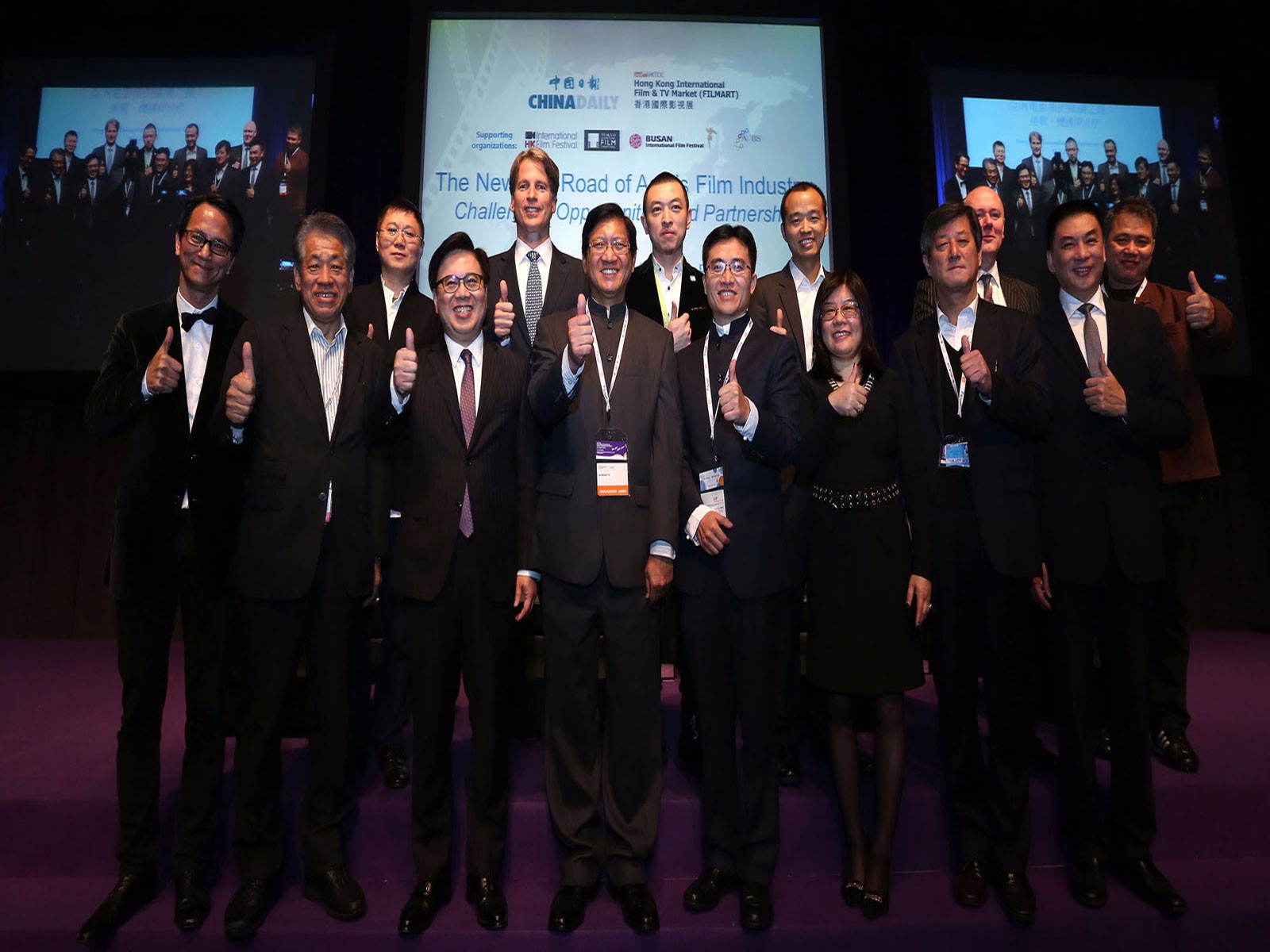2015-03-26

Asian Film Captains Tap Potential Market Growth in the New Silk Road Era MAR 25, 2015, Hong Kong – More than 300 delegates from the movie industry around the world attended the China Daily Asia Leadership Roundtable Panel on “The New Silk Road of Asia’s Film Industry: Challenges, Opportunities and Partnership” at 10.00AM to 12.30PM at FILMART. We are delighted to work with Hong Kong Trade Development Council again and to be the Media Partner for FILMART 2015 for the third consecutive year. China’s “New Silk Road” initiative is widely valued for its potential in reshaping Asia’s economic landscape forAsian Film Captains Tap Potential Market Growth in the New Silk Road Era growth and prosperity in the 21st Century. As such, it is expected to have a profound impact on the region’s movie and entertainment industry that has already embarked on a new phase of expansion in a scale unseen before. Asia is already well-‐established as the world’s largest and fastest growing film market. In 2014, combined box office receipts in this region amounted to $4.7 billion, accounting for 80 percent of the global growth. On the Chinese Mainland, investment in the film industry and box-‐office gross has been increasing by leaps and bounds in each of the past several years. Meanwhile, the ASEAN countries, strategically located in the first leg of the “New Silk Road” have committed to opening their film markets by the end of 2015 under the ASEAN Economic Community agreement. Elsewhere in the region, India’s “Bollywood,” Japan’s “J-‐pop” and South Korea’s “K-‐pop” are already making significant inroads into the international marketplace. Mr. ZHOU Li, Publisher & Editor-‐in-‐Chief of China Daily Asia Pacific believed that the rapid development of China’s film industry in alignment with President Xi’s ‘New Silk Road’ initiative will make recognizable contribution to the growth of Asia’s film industry. Mr. Zhou welcomed the distinguished keynote speakers together with Mr. Raymond YIP, Deputy Executive Director of Hong Kong Trade Development Council including Dr. Wilfred WONG Ying-‐Wai, Chairman of Hong Kong International Film Festival Society, Chairman of Asian Film Awards Academy & Vice Chairman of Hong Kong Film Development Council; Mr. LEE Yong-‐Kwan, Festival Director of Busan International Film Festival; Mr. Yasushi SHIINA, Director General of Tokyo International Film Festival and Dr. MA Runsheng, President of China Radio, Film and Television Program Exchange Center. Wong expressed that the current task for the film industry in Hong Kong would be to groom a new generation of professionals and audiences. Ma echoed Wong’s perspective about Asia’s film industry; he hoped that in the future, shows produced in and by China could be seen in most channels around the globe to present the life in China. Lee mentioned Asian movies have always played an important role in the global market; however, communication within the region was hindered by cultural and political barriers. In contrast, Shiina stressed each movie was a medium to arouse interests for cultural communications. That’s why it should have no national boundaries at all. Seven panelists from across Asia including Mr. Pantham THONGSANG, Deputy Secretary for Academic Affairs of The National Federation of Motion Pictures and Contents Associations, Thailand; Mr. LI Yansong, President of iQIYI Motion Pictures and Vice President of iQIYI.com, Inc; Ms. Ann AN, President of Desen International Media; Mr. ZHU Huilong, Chief Executive Officer of Heyi Pictures, Senior Vice President of Youku Tudou Inc; Mr. William PFEIFFER, Chief Executive Officer of Dragongate Entertainment Ltd; Mr. Clifford COONAN, Asia Bureau Chief of The Hollywood Reporter and Mr. Raymond ZHOU, Columnist/Film Critic of China Daily further discussed the challenges and opportunities from their own industry perspectives. Li said the Internet can play a bigger role in the film industry, like launching crowd funding and providing advanced ticket booking. Zhu also stated that in western countries, the success of a film was not reflected only by its box office but also by its sales in an array of merchandises -‐ from mugs to T-‐shirts. This is the area that Chinese producers can pay more attention to as it has a lot of potential. Thongsang believed Thailand can be the gateway for China to other Asian countries, while in return; Thailand films can also enter the Chinese market through its good story ideas.